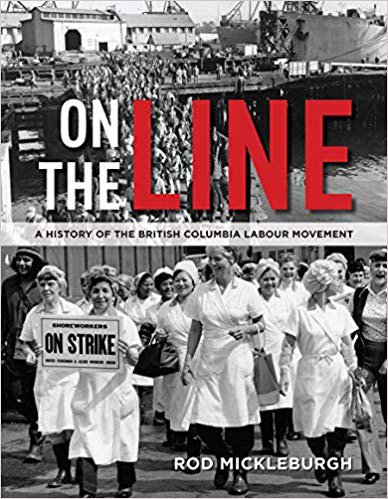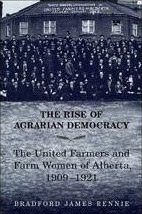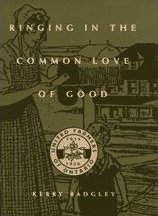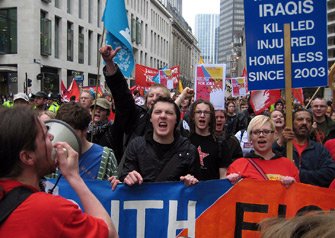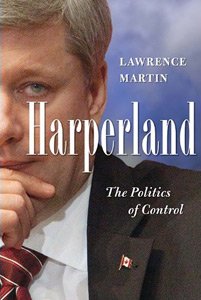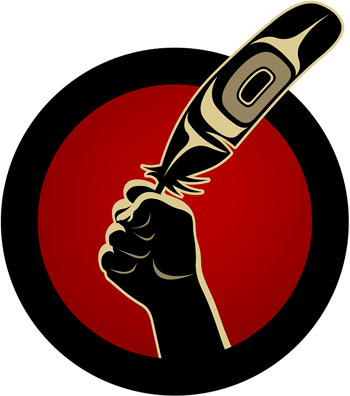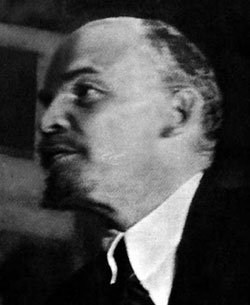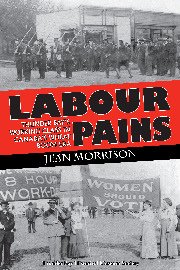Canada - Socialist Articles
More than 150,000 trade unionists, their families and supporters poured into the streets of Montreal from all over Quebec to protest Premier Philippe Couillard's attack on public-sector workers and government services.
On The Line is an account of BC trade unions by the BC Labour Heritage Centre (an offshoot of the BC Federation of Labour) written by retired Vancouver Sun labour reporter Rod Mickleburgh. In a well illustrated and lively manner he tells the story of workers’ organizations and struggles, from Vancouver Island Coal miners in the 1850s to teachers’ struggles today.
The Rise of Agrarian Democracy is the story of how Alberta farmers built a movement that elected the longest lived experiment in farm populist government in North America—the United Farmers of Alberta (UFA) from 1921 to 1935. B.J. Rennie’s aim is to tell and analyze how this mass mobilisation arose through the development of “a movement culture” in three steps.
In Spring 2001 thousands mobilized to protest the Free Trade Area of the Americas conference in Québec City. Following the "battle in Seattle" in 1999 and protests in Europe, a new anti-capitalist current has arisen. It is a current that includes some inspired by democratic socialism, but mostly includes a new generation inspired by some form of populism, radical liberalism open to refinement as either anarchist or socialist.
The University of Toronto (UofT) General Assembly, initiated primarily by a group of left-wing students at the University of Toronto, was launched on January, 2011. The first gathering of the assembly saw a hall packed with some 200 students, workers and community members. Many experienced activists were present. More importantly, however, was the participation of a significant number of youth who were recently politicized and interested in organizing.
The Harper Conservative government is in its second iteration as the national government of Canada. It is quite likely that a federal election will happen in the coming year as Harper looks to move beyond minority status to a majority government. If Lawrence Martin’s recent account of Harper is accurate (his book Harperland), then we are in deep trouble if he succeeds.
Since the federal apology in 2008 for residential school abuse, and the holding of the first Conservative/First Nations conference in January 2012, some aboriginal leaders, like Sean Atleo, National Chief of the Assembly of First Nations, hope for a renewed relationship between aboriginal and non-aboriginal Canada – a relation that appeared to be renewed by the 1994 Royal Commission on Aboriginal Peoples Report and the Kelowna Accord of 2005 – with a promise of five billion dollars over ten years to address native poverty to create a more self sufficient future.
In Canada’s left culture today, it can be hard to imagine that revolutionary socialists were the dominant tradition on the left before World War One, among the leadership in the transition to industrial unionism by the 1940s (the force driving the creation of a Canadian welfare state), and an organized force of thousands in the 1960s and 1970s influencing a wide spectrum of struggles.
This is a study of working class formation. In particular, it is the story of the most advanced Thunder Bay (then Fort William and Port Arthur) workers from the 1880s to World War One as measured by such forms of autonomous institutional completion as trade unions and political parties.


